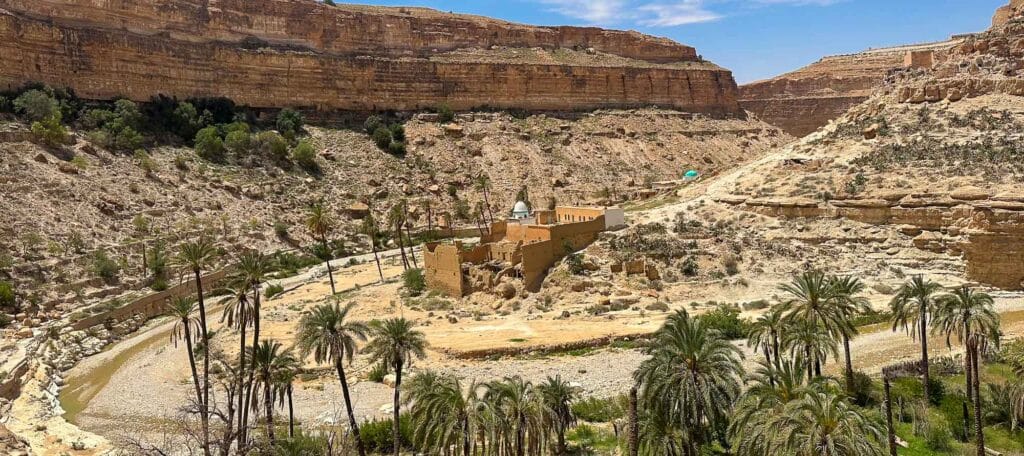The streets of Algeria are not just thoroughfares; they are the veins through which the country’s vibrant culture and history flow. As a cinematographer who has spent years filming in this North African gem, I can tell you that capturing the essence of Algerian street life is both an exhilarating challenge and a deeply rewarding experience.
Algeria, with its complex blend of Arab, Berber, Ottoman, and French influences, offers a tapestry of sights, sounds, and stories waiting to be captured on film. Whether you’re a seasoned filmmaker or a newcomer to these shores, there’s something uniquely captivating about the way life unfolds on the streets of Algiers, Oran, Constantine, and beyond.
The Cultural Tapestry of Algerian Streets
Understanding the cultural fabric of Algeria is key to authentically capturing its street life. This is a country where tradition meets modernity in unexpected ways. The winding alleys of the Casbah in Algiers, with their whitewashed walls and hidden courtyards, stand in stark contrast to the bustling, modern avenues below. Here, the echoes of history are palpable, and every corner seems to whisper tales of the past.
Yet, it’s not just the architecture that tells a story; it’s the people. In the markets, vendors call out in a mix of Arabic, French, and Berber, selling everything from spices to intricate textiles. The language barriers can be daunting at first, but even a few basic phrases in Arabic or Berber, or the help of a local translator, can open doors to deeper connections and more genuine interactions.
Navigating the Legal Labyrinth
Filming in Algeria requires more than just technical skill; it demands an understanding of the local laws and regulations. Securing the necessary permits is a vital step in ensuring that your project runs smoothly. While public spaces are generally accessible, certain areas, particularly those of historical significance, may require special permissions. Navigating this process can be intricate, but it’s made infinitely easier with the guidance of a local fixer who knows the ins and outs of Algerian bureaucracy.
In my experience, it’s always best to err on the side of caution. Filming on private property or capturing identifiable individuals without proper consent can lead to complications. A friendly approach, clear communication, and a willingness to engage with the community can go a long way in gaining the trust and permissions you need.
The Art of Engaging with the Community
There’s an old saying in Algeria: “The guest is the beloved of God.” This deeply ingrained sense of hospitality can work to your advantage as a filmmaker. Building relationships with locals isn’t just about gaining access; it’s about ensuring that the stories you tell are rooted in the realities of those who live them.
I’ve found that explaining your project and its purpose can turn even the most camera-shy individuals into enthusiastic participants. However, remember that consent is crucial. Model releases are not just a formality; they’re a sign of respect for the people whose images you’re capturing. They ensure that your portrayal of Algerian life is both ethical and legally sound.
Capturing the Unseen: Techniques and Tips
When it comes to equipment, less is often more. Algerian streets, whether in the medinas or the bustling centers, are full of life and movement. Large, obtrusive cameras can disrupt the natural flow, making people self-conscious and altering the very scenes you’re trying to capture.
Instead, opt for lightweight, discreet equipment that allows you to blend in. Shooting from a distance with a long lens or finding creative angles that don’t confront your subjects directly can result in more authentic footage. The goal is to be a silent observer, capturing life as it unfolds naturally.
The Pulse of Algeria: Street Life Across Regions
Algeria’s diversity is one of its greatest assets. From the Mediterranean coast to the Sahara, the country’s regions each offer a unique backdrop. Algiers, with its mix of old and new, is a city of contrasts. The Casbah’s labyrinthine streets, where history seems to hang in the air, are perfect for capturing the essence of the past. In contrast, Oran’s vibrant port and music scene reflect the city’s more modern, cosmopolitan side.
Constantine, perched dramatically on the edge of a canyon, offers stunning visuals and a sense of timelessness. And then there’s the Sahara—where the desert meets the sky in an endless expanse. Here, street life takes on a different meaning, with small oases and remote towns offering glimpses of life on the edge of the world.
Ethical Filmmaking: A Responsibility
As filmmakers, we have a responsibility to portray our subjects with honesty and respect. Algeria’s streets are full of stories waiting to be told, but how we tell them matters. It’s easy to fall into the trap of exoticism, but the real beauty of Algerian street life lies in its authenticity. Strive to capture that without imposing a narrative that doesn’t belong.
Remember too that your presence can have an economic impact. Hiring local crew, guides, and services not only supports the community but enriches your project with their invaluable knowledge and insight. It’s a partnership that benefits both sides.
The Final Word: A Call to Adventure
Filming in Algeria is more than a technical exercise; it’s a journey into the heart of a country that is as complex as it is beautiful. For newcomers, the streets of Algeria may seem daunting at first, but with respect, curiosity, and a willingness to engage, they will open up to you in ways you never imagined.
So, pack your cameras, bring an open mind, and prepare to discover the untold stories that lie waiting in Algeria’s streets. As someone who has walked these paths many times, I can assure you—it’s an adventure you won’t forget.

